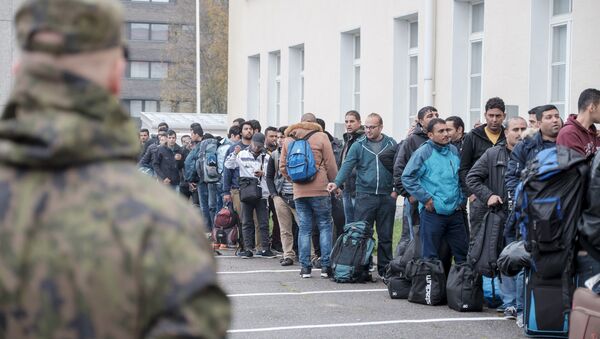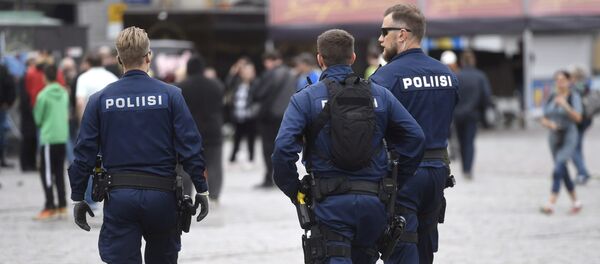Unlike its Nordic neighbors, Finland has long seemed to be spared from the terrorist threat. The recent knife attacks in Turku changed that situation, putting Finland on the map of international terrorism.
Moreover, Professor Esteban F. Klor from the Hebrew University of Jerusalem claimed Finland to have produced the most Daesh terrorists in the world in relation to its population, Finnish national broadcaster Yle reported.
While Muslim countries like Tunisia and Saudi Arabia were identified as the largest suppliers of jihadists, with thousands of mercenaries, small European nations with minor Muslim communities (such as Sweden, Belgium and Ireland) top the list in respect to the Muslim population. Finland has "supplied" about 80 jihadists, while having a Muslim population of only about 60,000. Several jihadists from Finland have even allegedly risen to positions of prominence in Daesh.
According to Klor, these figures suggest that it might be difficult for Muslims to feel at home with strong non-Muslim culture with a sense of unity.
"In some countries, it may prove difficult for first and second generation Muslim immigrants to integrate. They feel alienated and do not share the same values as the rest of the population," Klor said.
Predictably, Klor's analysis, which is claimed to be the first of its kind, was met with skepticism in Finland. Finnish researcher Karin Creutz of the University of Helsinki is doubtful about Klor's conclusions. According to Creutz, who is an expert on radicalization and herself interviewed people who had traveled to the Middle East to take part in the conflict, Finland's contribution is not alarming compared with other countries.
Creutz stressed that the official count of the so-called "foreign fighters" is not specified. In many cases, the Finnish authorities possess reliable information about people who joined Daesh or even died in combat zones. Additionally, the figures clearly fail to reflect the emigrants' motive, as the list of Finland's "jihadists" obviously includes their family members and possibly children.
What both researchers agreed upon despite discrepancies over the research method is the need to highlight the exclusion that many groups feel.
"There is a growing unease in Europe, and it's not about poverty. Rather, about a great dissatisfaction and a sense that you don't belong," Creutz pointed out. According to her, it is particularly problematic for people who feel alienated despite being raised in the country and having a network of contacts. "This can be particularly harmful for a young person's identity," Creutz said.
"The propaganda currently aimed at Finnish outcasts and even asylum seekers is terrifyingly effective," Päivi Nerg said, as quoted by the Finnish daily Helsingin Sanomat.





